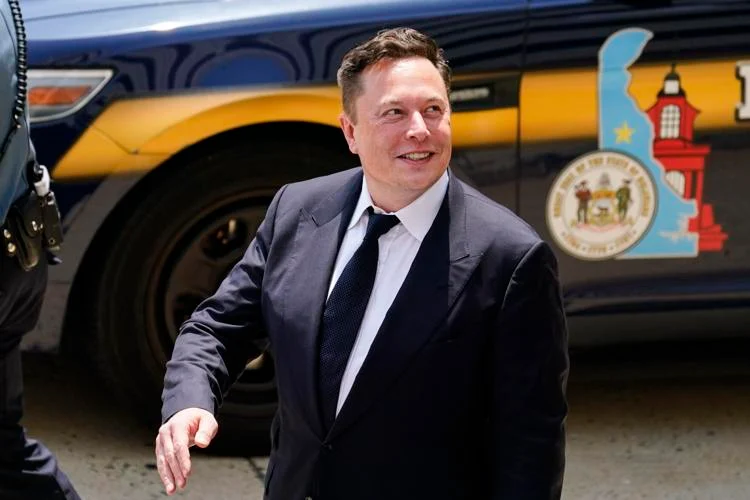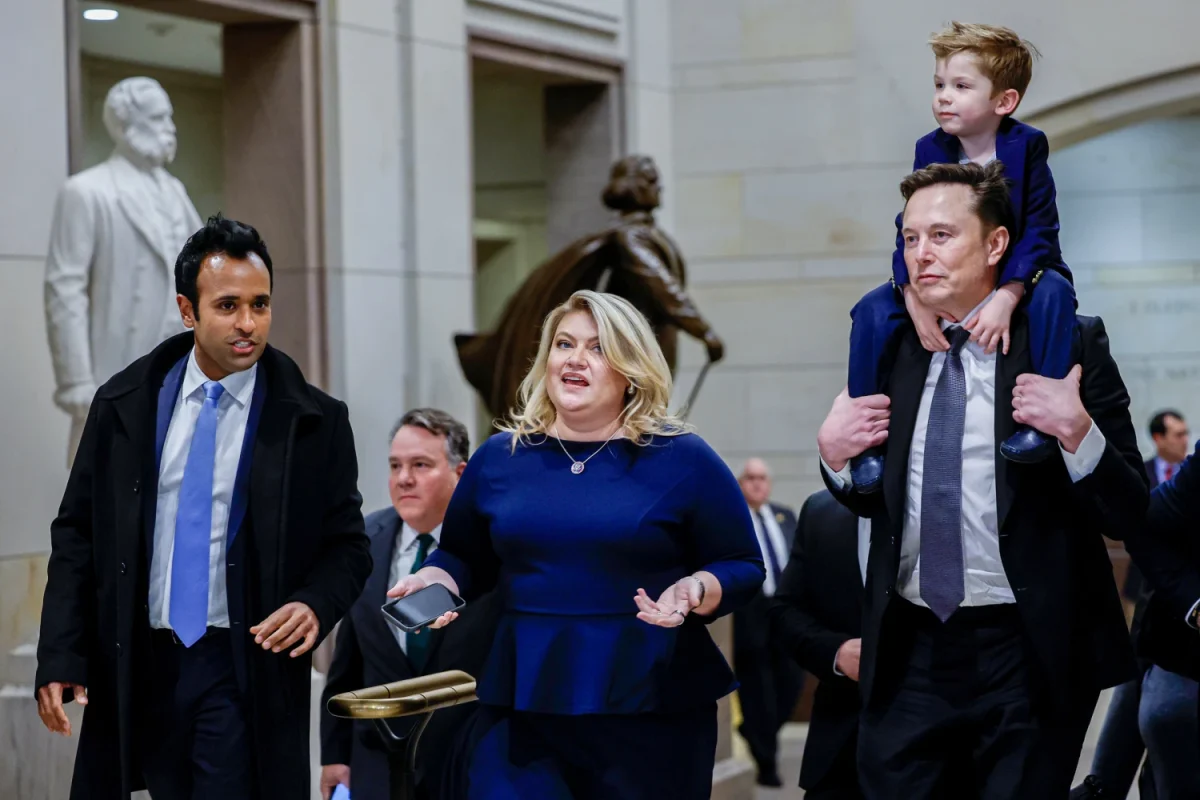Key Points
- A growing movement of companies leaving Delaware threatens the state’s dominance in the corporate sphere, and Delawareans who rely on “the franchise” to maintain lower taxes.
- Elon Musk has been advising company leaders to leave Delaware ever since a state court rejected his $55.8 billion Tesla pay package in 2024.
- Musk’s lawyers helped draft Senate Bill 21, which alters important parts of Delaware legal code.
- Critics say the bill appeases billionaires and will hurt DE citizens who own stock through a pension or retirement account.
On the afternoon of Thursday, March 13, Senate Bill 21 (SB21) was passed unanimously by the 20 members present in Delaware’s Senate, with one absence. The bill has garnered national attention for changes in Delaware law that critics say give too much influence to corporate boards and billionaires. SB21’s enactment follows a growing movement dubbed “DExit.” Led in part by Elon Musk, “DExit” has prompted threats from several high-profile companies to leave Delaware.
Delaware is home to nearly 67.6% of Fortune 500 companies and is known as the “corporate capital of the world.” A third of the state budget – roughly $2.2 billion – comes from corporate franchise revenue, which is part of the reason that Delaware has no sales tax and relatively low property taxes. Delaware General Corporation Law and the case law that interprets it sets a global standard for corporate law. So, it’s not surprising that Elon Musk found himself in Wilmington during an over 6-year-long corporate dispute.
In 2024, Delaware Chancery Courts rejected Elon Musk’s bid to take a $55.8 billion Tesla compensation package for the second time. The package would establish the amount of stock Musk is paid assuming Tesla hits certain targets. Chancellor Kathaleen McCormick said that Tesla “misleadingly omitted details” in their statement to shareholders, and didn’t accurately describe conflicts of interest posed by certain directors. Even though the package received director and minority shareholder approval, McCormick ruled that Musk and the Tesla board failed to meet their burden to prove that the plan was fair.
Following the plan’s rejection, Musk took to X (formerly known as Twitter) advising company leaders to “never incorporate your company in the state of Delaware.” On February 14, 2024, Musk announced that his company SpaceX had moved its incorporation from Delaware to Texas, the latter of which recently established the Texas Bitcoin Reserve in its own Senate Bill 21. Musk urged other companies to follow his example and “move to another state as soon as possible.”
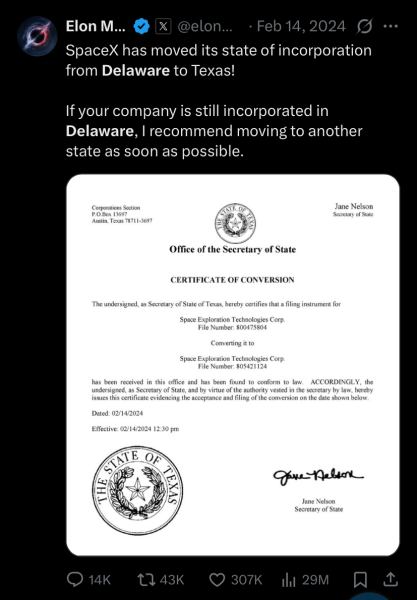
Now, companies such as Meta Platforms (the parent company of Facebook, Instagram and Whatsapp) and Dropbox Inc. are considering incorporating elsewhere. If the trend of big companies leaving Delaware catches on, it could increase the tax burden of the everyday Delawarean.
CNBC has obtained records showing that Gov. Meyer invited law firms that have represented Musk, Meta, and Tesla to a meeting about “Corporate Franchise” on February 1. This was a day after The Wall Street Journal published its story on Meta considering a Delaware departure. On February 2nd, Governor Matt Meyer announced that Delaware legislators were investigating possible solutions to the threat of “DExit”, telling Business Insider, “It’s really important we get it right for Elon Musk or whoever the litigants are in Delaware courts.” In the following days, Meyer invited Meta’s corporate secretary, senior national director, and lawyers to meet with him. Soon after, SB21 was rushed to the Delaware Senate, bypassing the usual process where the Delaware Bar Association’s Section of Corporation Law Council suggests amendments.
When asked about Elon Musk in an interview with CNBC on March 11th, Delaware Governor Matt Meyer jokingly responded “Elon who?” and asked the billionaire to “Please stop cutting our federal government with a chainsaw.”
Gov. Meyer says SB21 clarifies “long-standing ambiguities in corporate decision-making by providing a clear safe harbor for independent directors, a key request from business leaders.” Meyer says the bill is “aimed at ensuring the state remains the premier home for U.S. and global businesses.” The bill’s sponsor (and former corporate lawyer) Senate Majority Leader Bryan Townsend echoed this perspective in an interview with the Delaware Call, saying “fundamentally our reputation is what we want, which is consistency and predictability in our law.”
The bill also responds to financial concerns. Townsend noted that every major company leaving Delaware would be $250,000 out of the state’s annual budget, and SB21 aims to avoid this loss of state revenue.
SB21 raises the threshold for defining a “controlling shareholder,” which is a shareholder with the ability to exercise actual control over the business. The bill requires a shareholder to own at least 33.3% of stock in order to be considered a controller. This exempts Musk, the largest Tesla shareholder, who owns 12.8% of Tesla stock as of 2024.
On March 11, shortly before SB21 was passed by the Senate, current and former Tesla directors (including Musk) submitted an appeal of the compensation package ruling to the Delaware Supreme Court. The appeal argued that McCormick’s ruling incorrectly applied the “entire fairness” standard, which is used to protect shareholders when a controlling shareholder negotiates a self-interested deal with the board.
Since SB21 redefines a critical point of contention in the ruling on the Tesla package, some believe this gives Musk a greater chance of winning his appeal. However, Sen. Townsend said that the legislative changes would not retroactively affect the pending litigation.
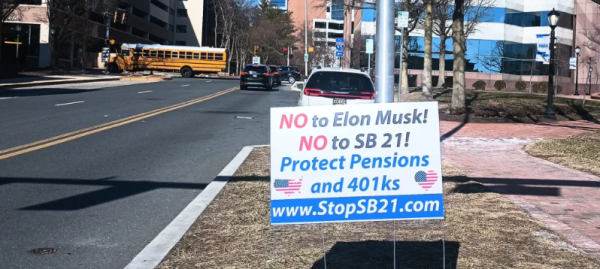
Richards, Layton & Finger (RLF), a law firm whose clients include Elon Musk and Tesla, is part of the group that drafted SB21. This has led to further concerns about the bill being heavily influenced by Musk, although an RLF spokesperson said that the firm’s involvement was not done on behalf of any specific client. RLF President Lisa Schmidt said that the firm was “assembled by elected officials to recommend language included in the proposed legislation.”
Townsend told the Delaware Call that SB21 responds to “an unprecedented amount of discontent that had been building for a while … not just [in] the controller context.” He explained that whether the reasons were “groupthink or reputational”, the bill simply establishes what has already been an unofficial standard. Larry Hamermesh, a local law professor, spoke to the Senate in support of the bill on Thursday. He said that SB21 “return[s] Delaware corporation law to where it was 10 years ago.” However, attorney Michael Hanrahan, who has practiced Delaware corporate law for more than 46 years, says that “SB 21 fundamentally changes, not restores, traditional Delaware law of fiduciary duty.” (Fiduciary duty is the duty of a corporation’s directors and officers to act in the best interests of shareholders and avoid conflicts of interest.)
Delaware litigation attorneys who oppose SB21 argue that Hamermesh and other proponents of the bill invented a non-existent past of Delaware law to overturn numerous judicial precedents and protect Silicon Valley tech oligarchs from liability. Attorney Joel Friedlander, a founding partner at Friedlander & Gorris, P.A., says that SB21’s new thresholds for proving unfairness and revealing evidence of corruption creates new “hurdles for judicial review” that make it more difficult for stockholders to “discover evidence of insider disloyalty.”
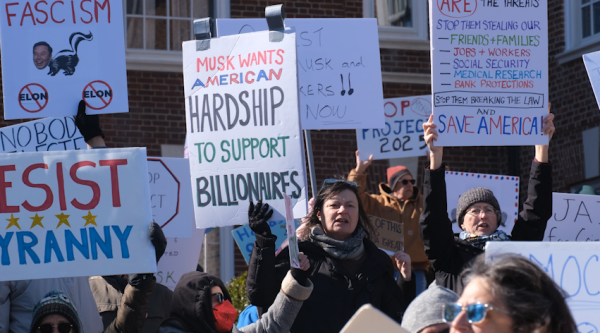
Some have noted that SB21 appears to model Nevada law, which notoriously offers more liability exemptions for companies. Delaware attorney Greg Varallo, who represented Richard Tornetta in his case against the Tesla Board of Directors, called Nevada “the state which gives controllers the clearest and easiest to follow road map to commit grand larceny.” Nevada and Texas are two states Elon Musk recommended incorporating in, and seem to be the most common alternatives considered by companies looking to move.
Townsend said that Delaware corporate law has become misaligned from the previous balance it maintained between stockholders’ and directors’ rights, and legal experts explained that bills like SB21 are needed as a course correction to keep up with Delaware’s business-friendly reputation.
Last year there were several controversial rulings in Delaware Chancery Court, followed by quickly introduced bills. Notably, the aftermath of West Palm Beach Firefighters Pension Fund v. Moelis & Co. triggered the passage of SB313, a bill that essentially overturned the ruling of Moelis. While this may appear to be appeasement, legislators maintain that legal changes are meant to recognize existing flaws in the law, and would never be introduced just because a business threatened to leave.
Foley & Lardner LLP is one firm tracking the changes in Delaware governance, and the possible causes. Foley lawyers note a higher level of legal scrutiny applied to company “controllers”, especially so-called “rockstar” CEOs and founders like Elon Musk, whose power and influence are enough to convince companies to go along with their self-interested proposals. Sen. Townsend rebutted the idea of Musk’s charisma to the Delaware Call, saying “I don’t think that Elon Musk is charismatic.”
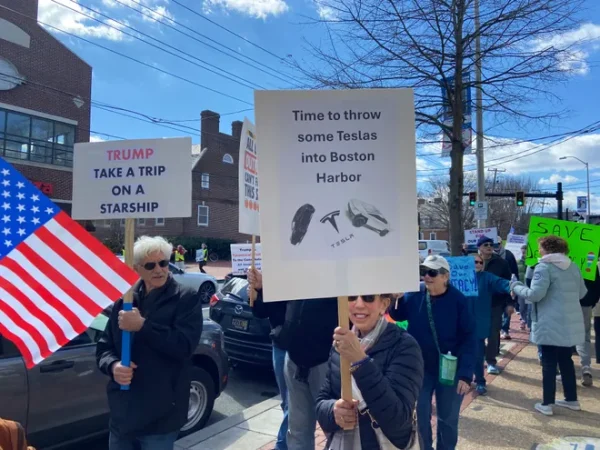
As Musk’s influence grows in American politics, Delaware’s dominance in the corporate sphere is likely to continue facing threats. As for SB21, it will now move to the Delaware House of Representatives for further discussion and a vote.
